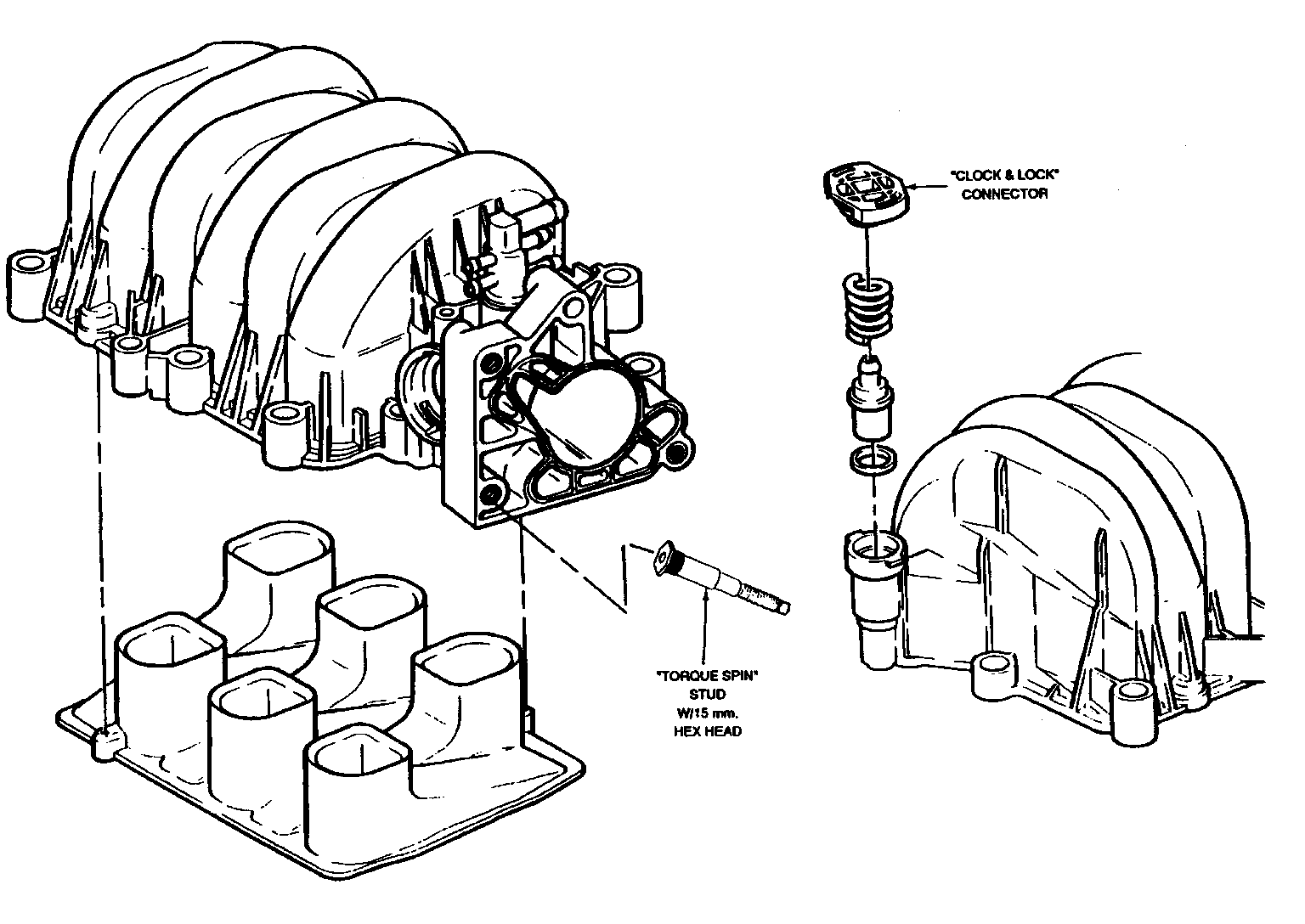NEW COMPOSITE UPPER INTAKE MANIFOLD (INFORMATION)

Subject: NEW COMPOSITE UPPER INTAKE MANIFOLD (INFORMATION)
Models 1993 BONNEVILLE AND TRANS SPORT MODELS Affected: WITH 3800 V-6 (L27) ENGINES
The 1993 3800 TPI Engine used in Bonneville and Trans Sport models has a composite upper intake manifold. The purpose of this bulletin is to familiarize technicians with some unique features of this manifold.
1. The manifold is molded of a composite material. This makes it considerably lighter than past model upper manifolds.
2. The throttle body and fuel rail are retained to the upper manifold with "torque spin" studs and well-nuts. These studs and nuts are designed to torque spin (turn) in the manifold if subjected to torque loads over 22 N.m (16 lbs.ft.). This was done to prevent damage to the manifold if any studs or bolts are overtorqued.
NOTE: It is not necessary to replace the manifold should a stud or well-nut spin in the manifold. Studs or well-nuts can be retained from the backside using a 15 mm wrench.
IMPORTANT: WHEN REINSTALLING A THROTTLE BODY, IT IS IMPORTANT THAT THE RETAINING STUDS BE COATED WITH LOCTITE 242 OR EQUIVALENT TO PREVENT THE NUTS FROM VIBRATING LOOSE.
TORQUE SPECIFICATIONS:
THROTTLE BODY TO MANIFOLD STUDS 12-18 N.m (9-13 lb.ft.)
FUEL RAIL TO MANIFOLD WELL-NUTS 10-14 N.m (7-10 lb.ft.)
FUEL RAIL TO MANIFOLD (BLIND HOLE) 10-16 N.m (7-12 lb.ft.)
3. The new "click and lock" connectors were designed for retaining the PCV valve, vacuum block and EGR pipe. This design, with a quick connect/disconnect feature, will aid in assembly/disassembly.
4. The seal between the upper and lower intake manifold is reusable when it has NOT been removed from its retaining channel. This seal has been designed to swell in the upper manifold gasket channel after installation to aid in sealing. IF THIS SEAL IS REMOVED FROM THE UPPER MANIFOLD GASKET CHANNEL, THE SEAL GASKET MUST BE REPLACED.

General Motors bulletins are intended for use by professional technicians, not a "do-it-yourselfer". They are written to inform those technicians of conditions that may occur on some vehicles, or to provide information that could assist in the proper service of a vehicle. Properly trained technicians have the equipment, tools, safety instructions and know-how to do a job properly and safely. If a condition is described, do not assume that the bulletin applies to your vehicle, or that your vehicle will have that condition. See a General Motors dealer servicing your brand of General Motors vehicle for information on whether your vehicle may benefit from the information.
